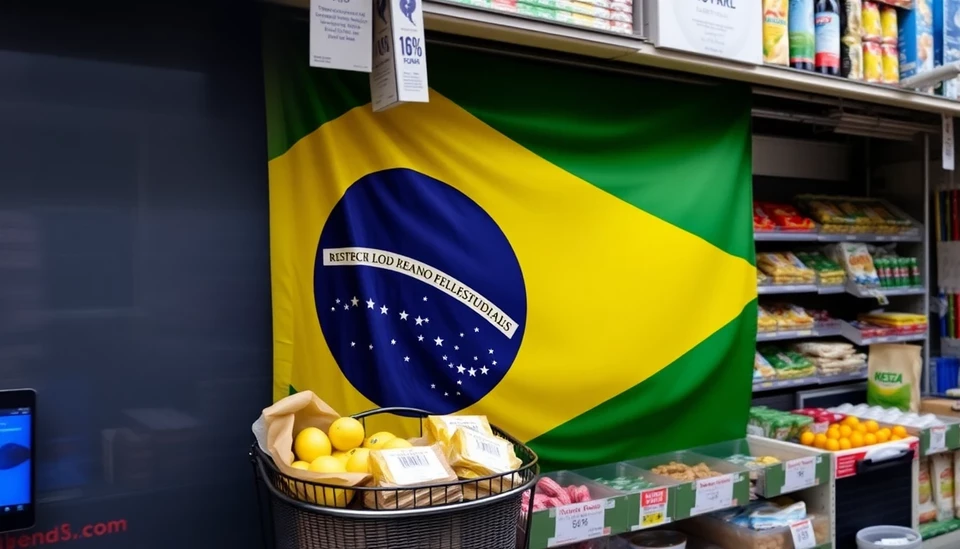
Brazil is currently facing a significant economic challenge as inflation rates accelerate, driven by sharp increases in electricity and food prices. Recent reports have revealed that the inflation rate spiked to 5.5% in October, up from 5.2% the previous month, marking a concerning trend for consumers and policymakers alike.
This inflation surge has been primarily attributed to a notable rise in energy costs, which have surged as the Brazilian government grapples with the impact of prolonged adverse climatic conditions affecting hydroelectric power generation, a crucial source of electricity in the country. Alongside this, the food sector has seen substantial price increases, particularly in staple items that directly affect the daily budgets of millions of Brazilians.
Analysts predict that this rise in inflation may lead to tighter monetary policies from the Central Bank of Brazil. The recent adjustments in energy tariffs and food prices are seen as temporary; however, their impact on consumer behavior and overall economic stability is under close scrutiny. Many Brazilians are already feeling the pinch in their household budgets as essential goods become increasingly unaffordable.
Further complicating the economic landscape, ongoing supply chain disruptions, exacerbated by global geopolitical tensions and local production challenges, have contributed to price volatility. Brazilian consumers, particularly those with lower incomes, are at a higher risk of being impacted by these shifts, leading to rising levels of economic anxiety across various demographics.
As the Brazilian government considers measures to curb this inflationary trend, experts are debating the potential efficacy of intervention strategies aimed at stabilizing both the energy and food markets. The central bank's next move will be pivotal, as policymakers weigh the risks of raising interest rates against potential stagnation in economic growth.
The situation has sparked discussions among economists about the sustainability of Brazil’s inflation targets and the effectiveness of current economic policies. As the government navigates this turbulent economic environment, the focus will remain on balancing inflation control with the need to stimulate growth.
In conclusion, as inflation begins to spiral and the cost of living rises for many, the government and the central bank are under increasing pressure to respond effectively. The economic outlook for Brazil remains uncertain, with many consumers anxiously awaiting the impact of the government's forthcoming decisions.
#Brazil #inflation #energycosts #foodprices #economy #CentralBank #economicpolicy #costofliving
Author: Laura Mitchell




